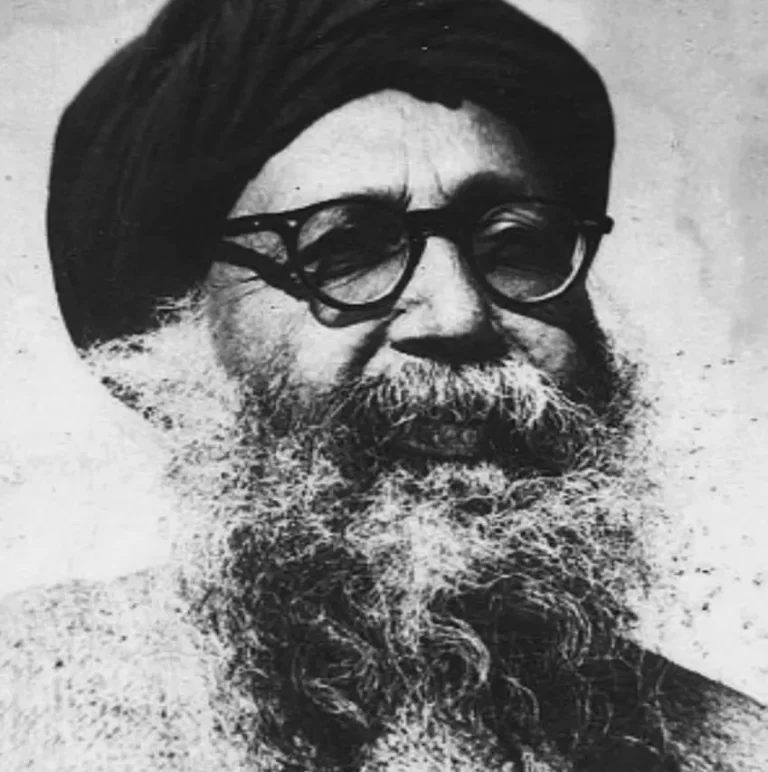
“I am confident that the whole Panth will back the idea of Azad Punjab and the brave sons of Guru Gobind Singh shall finally have a homeland of their own.”
Giani Kartar Singh, Azad Punjab, page 57, published in 1944
HARI SINGH
Giani Kartar Singh was born on the 22nd of February, 1902 to father Risaldar Bhagat Singh and Jeevan Kaur at Chak 40 in Lyallpur. Chak 40 used to be a village inhabited by army pensioners of the Jhang branch and Kartar Singh’s grandfather, Sardar Amar Singh had moved in the Lyallpur Baar region after retiring from military service.
Kartar Singh completed his matriculation and graduated from Khalsa High School in Lyallpur. When he was in the 8th grade in 1919 he visited Amritsar to meet with his uncle for the occasion of Vaisakhi. There he witnessed the brutal massacre at the Jallianwala Bagh, which occurred on the fateful day of his visit. This incident left a lasting mark on the young Kartar Singh’s personality.
Around that time there was a huge conference called in the village of Dharowali, home of Shaheed Lachhman Singh, hero of the Nankana Sahib massacre. Kartar Singh joined the conference along with two dozen students from his college. It was here that he was acquainted with popular leaders like Aga Muhammad Safdar Sialkoti (leader of the Muslim League), Dr Kitchlew (Congress leader) and Sikh leaders like Master Mota Singh, Teja Singh Chuharkana, Kartar Singh Jhabbar and Master Sunder Singh Lyallpuri, masterminds of the Akali movement. This conference inspired Sikhs to join the political fight for Indian independence, from which they stayed distant from until that time.
Upon graduating from 10th grade, Kartar Singh was admitted to the famed Khalsa College in Amritsar. Before moving there, the Nankana Sahib massacre had occurred on 20 February 1921 and news of which had reached to him when he was still in his village. He was privy to the huge wave of Jathas that departed en masse towards Nankana Sahib from Lyallpur and that inspired him to fully devote himself towards the Reform Movement launched by the Akali Dal. His first political experience was during the Jaito Morcha when he was arrested for supporting Jathas from Lyallpur. He was convicted by the colonial government and jailed for six months. Consequently, the Gurdwara Act was legislated in November 1925 and all jailed Akalis were released in a general amnesty.
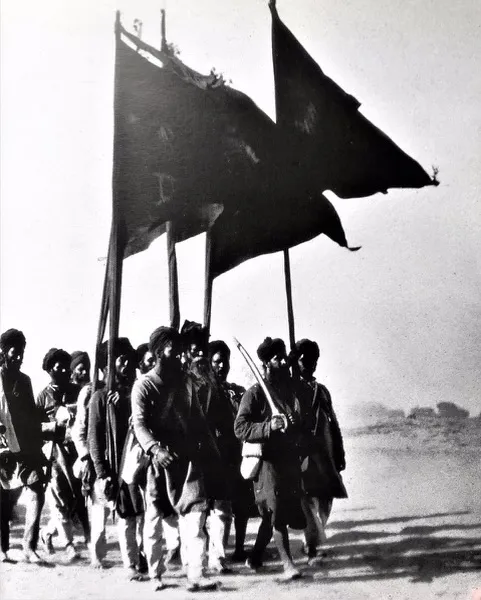
During the first elections of the Shiromani Gurdwara Parbhandak Committee, Kartar Singh was elected from the constituency of Dijkot and became a member of the first SGPC executive committee.
When the first Punjab Provincial Assembly Election was held in 1937 following the Government of India Act of 1935, now Giani Kartar Singh along with Partap Singh Kairon, Swaran Singh and Baldev Singh were elected as representatives of the Shiromani Akali Dal. This was followed by the 1945 elections whereupon Giani Kartar Singh was re-elected for the second time.
He proposed amendments to the 1925 Gurdwara Act to increase the control of the SGPC management of all Gurdwaras and by 1945 had it approved unanimously by all members of the organization.
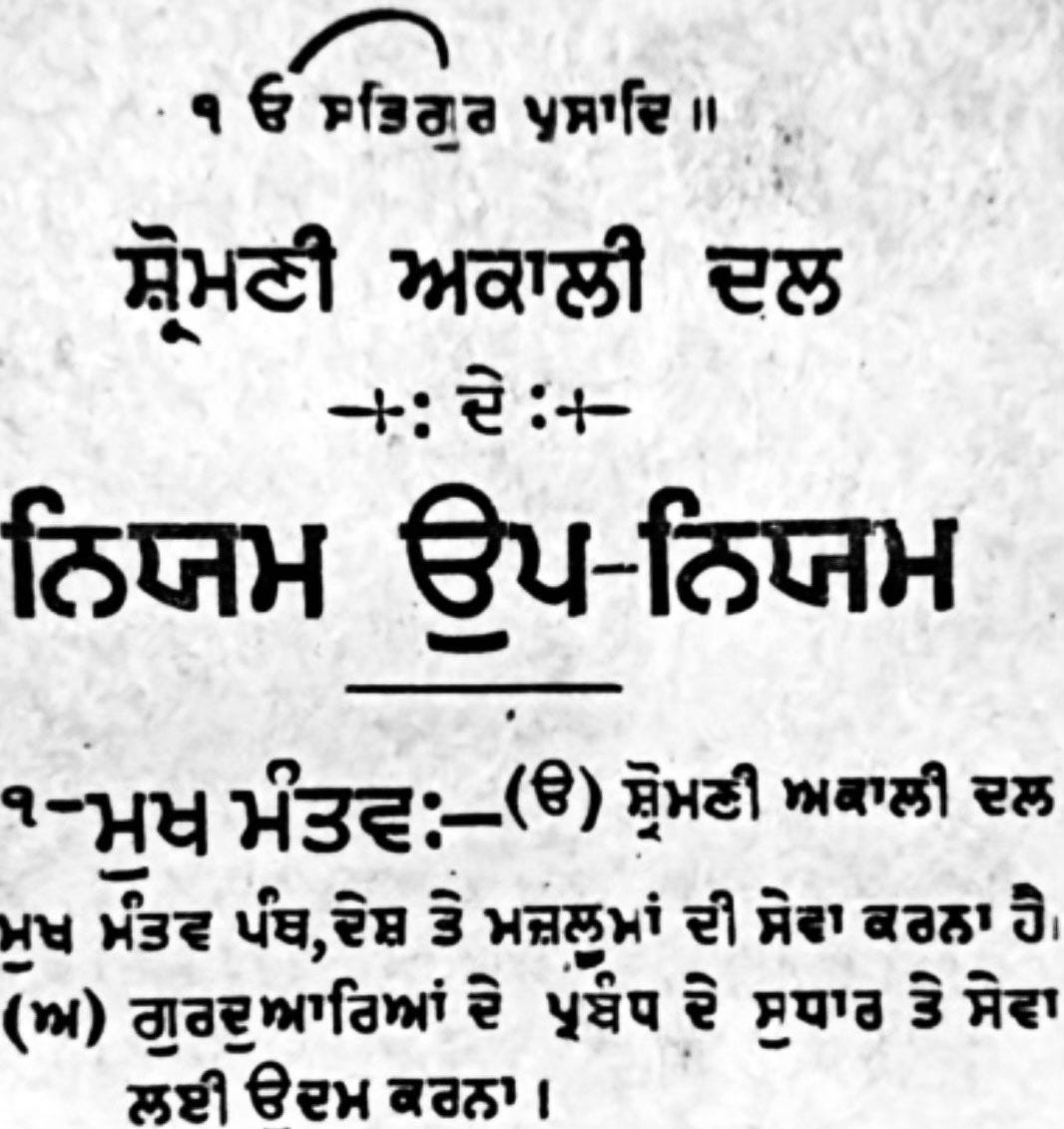
Before his ascent into the Akali movement, educated Sikh leaders thought of politics as a backwards preoccupation of illiterates. He was instrumental in changing that attitude and would go around in various university campuses to recruit promising young Sikhs into the Akali Dal and grooming them into serving Sikh interests. This was a counter to various organizations that united Muslims and Hindus to further Muslim League and Congress-Arya Samaj interests. The result of this was the foundation of All India Sikh Student Federation, which he was a key part of by coordinating Sikhs from educational institutions in Lahore. The organization was formally founded under his aegis on the 14th of September, 1944 and Sarup Singh was elected as its first president.
He had earned the title of Giani from a young age, due to his extensive knowledge of Gurbani. He was also known as “the brain of the Sikhs”, especially in British circles, due to his wittiness and wisdom during political negotiations and laconic speeches laced with rural Panthic idiom.
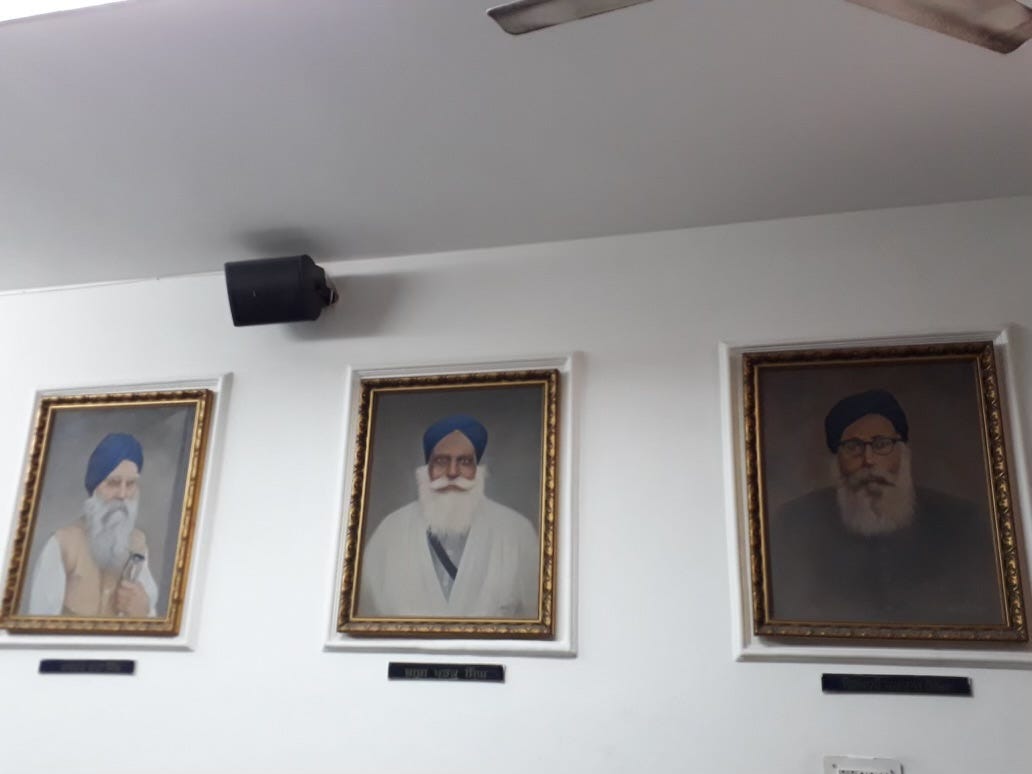
His popularity was only second to that of Master Tara Singh and he represented the Sikh community during talks for India’s partition. He did try to put forth an argument for a Sikh homeland, collated into a booklet titled “Azad Punjab” published in 1944, which were ignored by the colonial government. Once partition became a looming reality, he braced for the evacuation of Sikhs from Western Punjab. In December 1946 he was elected president of the Shiromani Akali Dal.
What is the background of the demand of Punjab’s partition so far?
The first plan was forged in 1930. The honourable Master Tara Singh and me were jailed in Gujrat during the Satyagraha movement and that was the time when the first round table conference for Indian independence occurred. The Muslim side vigorously demanded Sindh to be carved into a separate state and the Punjab assembly to be completely given to Muslims to run. Seeing a looming threat of Islamic domination upon Punjab the only solution for prevention we could come up with was partition of the state. After the Gandhi-Irwin pact (5 March 1931) we were released from jail. Gandhi Ji was staying in Delhi at the time and began talks with all factions of the Muslim side. During this meeting a united deputation of Sikhs also met Gandhi. They presented 17 demands to secure the future cooperation of Sikhs for the Indian Independence cause. One of the demands was an acceptance of the partition of Punjab where most Muslim majority districts be severed from the state. This deputation was made up of Master Tara Singh, Sunder Singh Majithia, Sir Jogendra Singh, Sardar Mangal Singh of the Central Assembly, Sampuran Singh, Ujjal Singh, Shivdev Singh Oberoi, Giani Sher Singh, Amar Singh- editor of the Shere Punjab newspaper and Sant Singh- MLA of Lyallpur. All of the aforementioned Sikh leaders from all walks of society agreed to pressure for the acceptance of those demands, stressing especially on partition. All of the Panth had made a consensus on this demand at that time.
⁃ Excerpt from “Azad Punjab”, interview with Giani Kartar Singh, edited by Giani Trilok Singh, Sikh Missionary College, Amritsar, pages 54-55, published 1944.
During partition, he arranged for the transport and safe passage of Sikh refugees to East Punjab at grave personal risk. He was especially assisted by MS Randhawa in ensuring the rehabilitation of Sikh refugees.
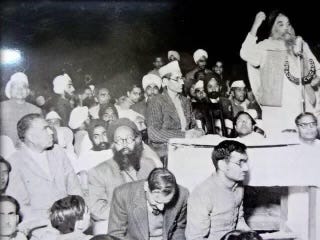
His legacy as a politician is that of an ascetic who never amassed wealth but relied on donations of sympathetic backers and activists. He became a state minister numerous times, both during Congress and Akali governments, but he donated all his salary and land to the founding of educational institutions, especially in the Hoshiarpur area of Doaba where he settled after India’s partition.
During the Punjabi Suba Movement he came forward to negotiate with Bhim Sen Sachar, which resulted in the so called Sachar Formula. A section of Akalis, led by him and Master Tara Singh, also merged with Congress and contested the 1957 elections against the Akali Dal led by Sant Fateh Singh. He became the minister for Revenue and Agriculture under the government of Partap Singh Kairon. He was re-elected in 1962 but lost the 1967 elections, following which he resigned from the Congress party. He ran for the 1972 Lok Sabha elections from Hoshiarpur but could not secure a victory.
Various anecdotes about the simplicity of his life abound in popular memory, one of which is a story of when he lost the election and police came to order his vacation of a government house which he had received as a minister. Giani Kartar Singh calmly ordered a rickshaw and packed his two sets of clothes, a kachhera and a turban into a small bag and left in short time.
This Panthic giant passed away on the 10th of June, 1974 at the Rajendra Hospital in Patiala.
____________
Courtesy: The Khalsa Chronicle (Posted on June 10, 2023) Received through email